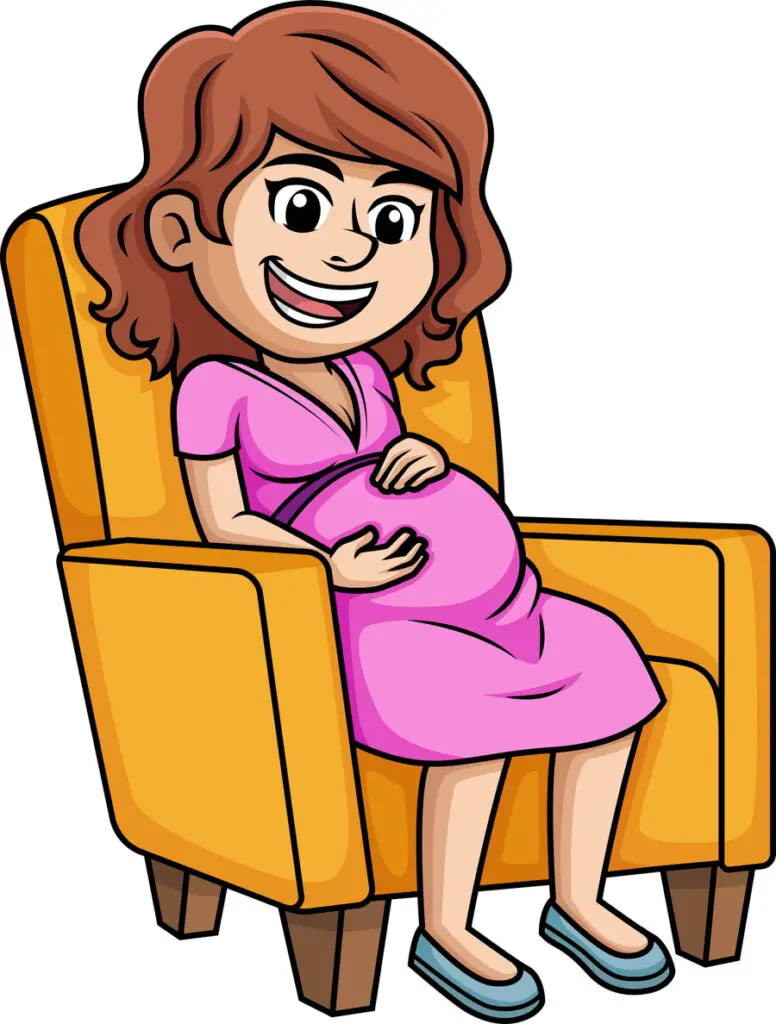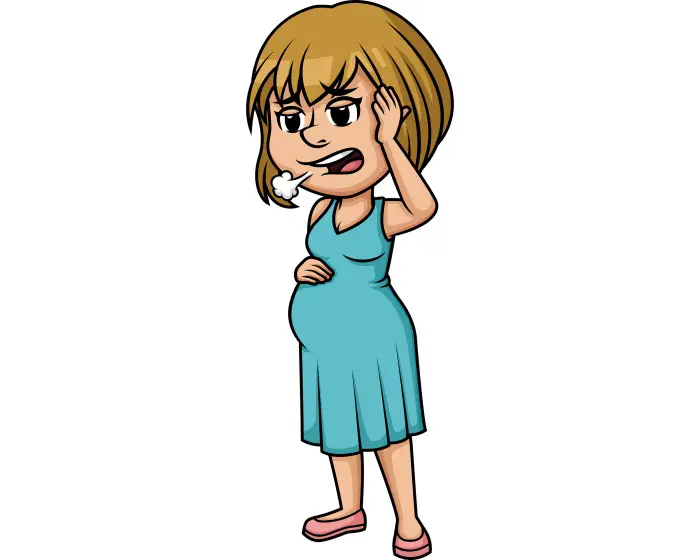Each new couple, or simply put, every woman of childbearing age, comes to terms about having a baby. With rising costs for raising children, as well as a recent trend in so-called liberalism and feminism, many question, ‘is having a baby worth it?’
Having a baby is absolutely worth it, though the decision warrants thinking outside of common perceptions of modern day success. Even though research conflicts on several points, a pros and cons look at parenthood can be advantageous for understanding just how much babies are worth it in the end.
As parents of four (two of whom are now grown with two more close behind), having a baby is something we obviously thought about, and answered affirmatively. It’s a big decision, to be fair, but in all actuality, it shouldn’t be about whether or not to have children, but more about how to be good stewards as parents when you do.

Contents
Pros & Cons Of Having A Baby Early
There’s certainly a debate on the issue of having a baby early in life. So what are the pros, as well as cons, for having a baby early that prospective parents, particularly moms, need to know?
Contrary to what some may think, having a baby early can be beneficial, particularly for the mother. From finances to health to quality of life for mother and child, even some prominent research show strong evidence that with family support, early maternity is a good thing.
When discussing having a baby early, it’s the age of the mother that’s being considered, not the child or the father. And for most standards, ‘early’ means aged 25 or under.
As of 2019, the median age of first-time mothers in the United States is 27, steadily up from years before, but still below Europe’s 31 years old for first-time moms.
CDC
In the recent past (and still commonly held by many) was a stigma towards young moms. For instance, young moms were considered a deviant teenaged pregnancy; uneducated; lacking goals; poor; and even, loose morally. And it was thought that their children were doomed to a life of impoverished nuisance…regardless of the mom and situation.
But hold on! To think this is to jump to uncorroborated conclusions!
Surprising to some, there is replicated research that says children of young moms aren’t more likely to have lower academic scores and increased behavior problems in school and at home. Instead, a stronger correlation exists between children and their mothers’ family background rather than maternal age that should be taken into account.
And as for moms, research suggests later pregnancies are much more risky for her health and well-being, which we’ll look at in another section.
So what’s something young moms need to know? Well, pregnant moms of all ages can benefit from information regarding pregnancy, childbirth, and having an infant. And one way to do this is to read up on it!
For instance, the very popular, well-known pregnancy guide, What to Expect When You’re Expecting (available free with an Audible membership) is helpful to new moms young and old, providing easy to digest info about becoming a mom.
| Pros Of Having A Baby At An Early Age | Cons Of Having A Baby At An Early Age |
| Have more energy | Lack of money |
| You’ll be younger even after children grow | Less time for developing/maintaining friendships |
| Easier to get pregnant | Inexperience in life |
| Less risky birth | Difficult to advance a career or education |
For related reading, I suggest these articles:
- How Many Kids Do You Want Is Hard For Some, Easy For Others
- When Should You Stop Using The Sleep Sack For Your Baby?
- Family More Important Than Friends? (Friends Are Overrated)
“Making the decision to have a child — it is momentous. It is to decide forever to have your heart go walking around outside your body.”
— Elizabeth Stone
Pros & Cons Of Having A Baby Later
Just as with having a baby early in life, there are positives, in addition to negatives, for having a baby later. Let’s look at the pros and cons, then, for first time mothers at a later age.
Historically, medical experts have advised against having a baby late in life. However, changing public attitudes toward late motherhood, as well as advancements in medicine reducing health risks, more women are choosing to wait. Despite improvements, doing so is still problematic.
For example, frequent research such as this one from the Journal of Human Reproduction have cited disadvantages of late in life pregnancy (pregnancy in mothers over 35). Those disadvantages include a multitude of negative health consequences for the mother like high blood pressure and cesarean section.
And then, you couple that with increased risk for the child. Doctors caution mothers with late in life pregnancies that their baby has higher potential for low birthweight, stillbirth, chromosomal disorders, and more.
| Pros Of Having A Baby At A Late Age | Cons Of Having A Baby At A Late Age |
| More established in career to take time off | Physical risks for baby such as Downs Syndrome |
| Financially secure (owns a home) | Physical risks for mother such as eclampsia |
| More mature and ready to settle down | Difficult pregnancy |
| Mentally prepared for motherhood | Tiredness is more extreme |
“A baby is something you carry inside you for nine months, in your arms for three years, and in your heart until the day you die.”
— Mary Mason
Disadvantages Of Not Having A Child
More women are delaying or even foregoing having a child now a days. Are there disadvantages of not having a child that women should know?
Disadvantages of not having a child like loneliness, social stigma, and lack of family support are common for childless couples or women in general. With more women/couples not having children, either by happenstance or choice, it’s advisable to understand the drawbacks of such a life-altering state.
According to Statista, US birth rates have been declining a bit every year and as of 2018, a little less than half of all US women of childbearing age were childless. Thus, understanding the disadvantages ahead is wise for women, especially if there’s still time and opportunity regarding having/not having a child.
Loneliness Is Associated With Childlessness
One of the biggest things women (and couples) face with not having a child is loneliness. Now initially, couples may fill up their time so much with professional and personal commitments that they don’t notice loneliness creep in for sharing a life with a child. This is especially true for unmarried people.
However, as their peers start having babies, it becomes more apparent. Mothers speak of a yearning that can’t be assuaged except for becoming a mom.
The Social Stigma Of Not Having Children
Becoming a mom/parent is like instantly being in a club. You are part of a social dynamic that will never change. If you aren’t a parent, you miss out on a lot of common issues and ties that bind you with others. Thus, childless couples often have difficulty connecting with peers who have started a family.
As well, those without children are often considered selfish and ungenerous. Whether actually true or not, it again, leads to a social label that’s difficult to overcome or dispel.
Childlessness Negates Family Support
And then, there is a family connection that is lost. Couples, and most definitely unmarried individuals, miss out on a special bond that only full families feel…that moms and dads feel for their children, and for each other, as they live life day-to-day together, connected as a family unit.
And the loneliness and lack of family support become even more of an issue as non-parents age.
This then leads to even greater loneliness in elderly years as well as depression. Many of the things that residents in the nursing homes my husband Mat used to teach exercise classes in named their biggest regret as: not having enough children.
Disadvantages of Having a Child

Whether late in life or an early pregnancy, there are several problems to having a baby. What are disadvantages to having a baby that women of any age need to know?
Disadvantages of having a child like tiredness, financial strain, and professional sacrifice are typical for parents and it’s prudent to plan ahead when possible. Yet, parents should realize not all pregnancy, and parenthood, problems are foreseen and that needs to be taken into account, too.
For some moms, being pregnant can be a real hazard. Moms with existing health issues should be aware that those problems are only exacerbated by pregnancy in most cases.
However, and unfortunately, some moms are taken completely by surprise since not all health problems are known until the pregnancy comes into play.
For instance, when I was pregnant with our first child, I was a healthy 22-year-old college student. We’d only been married six months before I became pregnant, but our baby was very much wanted and we didn’t foresee any real problems for concern. However, it soon became apparent that my pregnancy was to be ‘high risk’ as I developed gestational diabetes (when mothers become diabetic only during pregnancy) and suffered from pre-eclampsia (a high blood pressure condition) even though I was within healthy weight parameters for my body type and had no issues with blood pressure before pregnancy. Essentially, there was nothing we could have prepared for except to accept that there are risks with any pregnancy.
Then, of course, there are disadvantages to know about after the child is born.
The most common problems facing parents of little kids are:
- Backtalking and disrespect
- Not listening
- Sleep routines
- Meal routines
- Behavior issues at school including being bullied and/or bullying
- Financial costs
As parents ourselves, we’ve certainly experienced our share of problems with our kids and I’m sorry to let you know, it doesn’t just stop when they become 18, either!
The most common concerns of parents of teens and adult ‘children’ are:
- Sneaking around (sexual activity before marriage)
- Breaking rules/laws (i.e. drugs, alcohol, staying out past curfew, stealing…)
- Skipping school/work
- Laziness or apathy towards goals
- Aggressive behavior
- Financial costs
When our kids were little, we eagerly awaited their growth milestones such as potty training (no more diapers!) and later, we celebrated their big kid milestones like getting a driver’s license (no more chauffeuring!). But to be clear, with each and every achieved milestone came a different, and often more complex, set of issues.
Yet, the disadvantages don’t take away from the specialness and significance of being parents…ever. No, not at all!
“Successful mothers are not the ones that have never struggled. They are the ones that never give up, despite the struggles.”
— Unknown
Advantages of Having a Child
What is it that propels mothers to having a child? What are the advantages, then, to becoming a mother?
Advantages of having a child like a special bond, personal fulfillment, religious blessings, and family connection are some of the reasons couples (and women specifically) become parents. Though disadvantages exist, most couples and even some individuals, decide parenthood is worthwhile anyway.
Many decide to have a child to carry on the family name. This is more than just a namesake, however. People who express this desire are thinking metaphorically at the common thread from one generation to another and how even as we pass on, we essentially still ‘live’ via our namesake and lineage continuing.
Another reason some couples, like us, have a child is due to religion. For example, as Catholics, it’s considered a sacrament to be married and have children. Choosing to be married without children is akin to sin for us. Thus, an advantage for having a child is being in alignment with God’s plan for our life. (Genesis 1:28 God blessed them and said to them, “Be fruitful and multiply.”)
And believe it or not, there are even some health advantages for women who have a child. From lower risks of certain cancers to decreases in diabetes to better nutrition, being a mom can be healthier than not being a mom.
“Being a mother is discovering strengths you didn’t know you had, and dealing with fears you never knew existed.”
— Sherene Simon
Advantages of Not Having a Child

With decreases in teen pregnancy and increases in late motherhood, there is an overall decline in births altogether. What are advantages to know about not having a child?
For most, the advantages of not having a child are financial security, professional success, and more personal time. Nevertheless, even research has shown that the meaning of life goes beyond money and professional success and instead is about having a child.
It’s simple to see that the most prominent advantage of living childless deals with money. If one is not entangled with diapers, bottles, supervision, and other child-related tasks, then there’s more time to work late and less money that has to be spent on anything or anyone other than yourself and your personal wants and needs.
As well, without children taking up your time, you can spend it doing whatever else you’d want to do, when not working.
Childless couples are free to go out anytime they want, or sleep in as late as they wish.
However, is that a fulfilling life? There’s plenty of research, as well as mental-health specialists, to let you know that money and free time are not ingredients to a purposeful life. Focusing on ourselves is not typical for happiness and joy.
Rather, when we give and think of others, like parents do, we realize there’s more to life than wallets and things. And this is something that those who’ve chosen a childless life need to be aware of.
The Takeaway of Is Having a Baby Worth It
Having a child shouldn’t be taken carelessly or haphazardly. It’s the most important decision you’ll ever make, and being a parent is the most important ‘job’ you’ll ever have. So is it worth it?
Yes, it’s worth it! Worth more than all the money in the world!
For further reading, I recommend these popular family-related articles:
